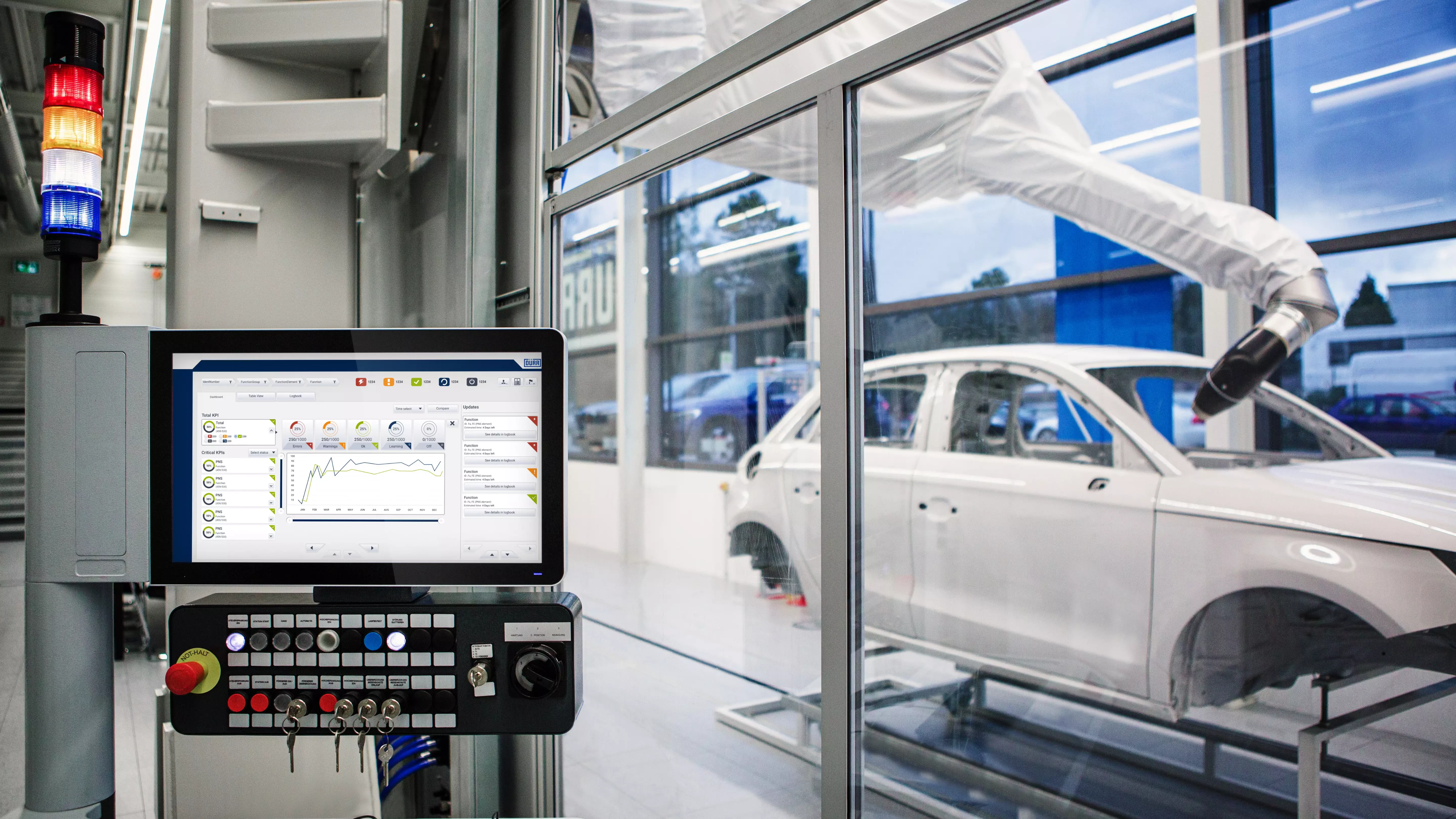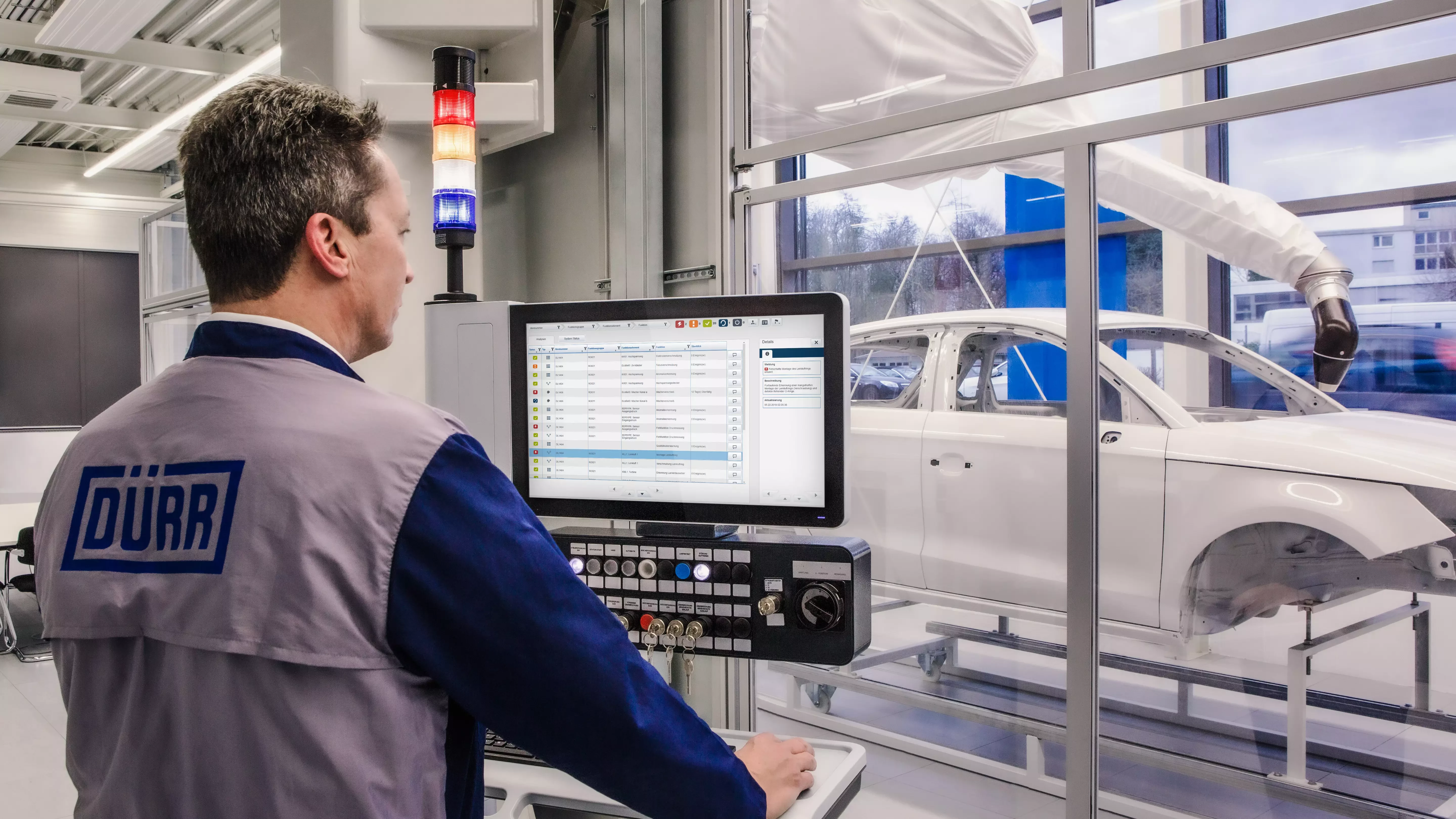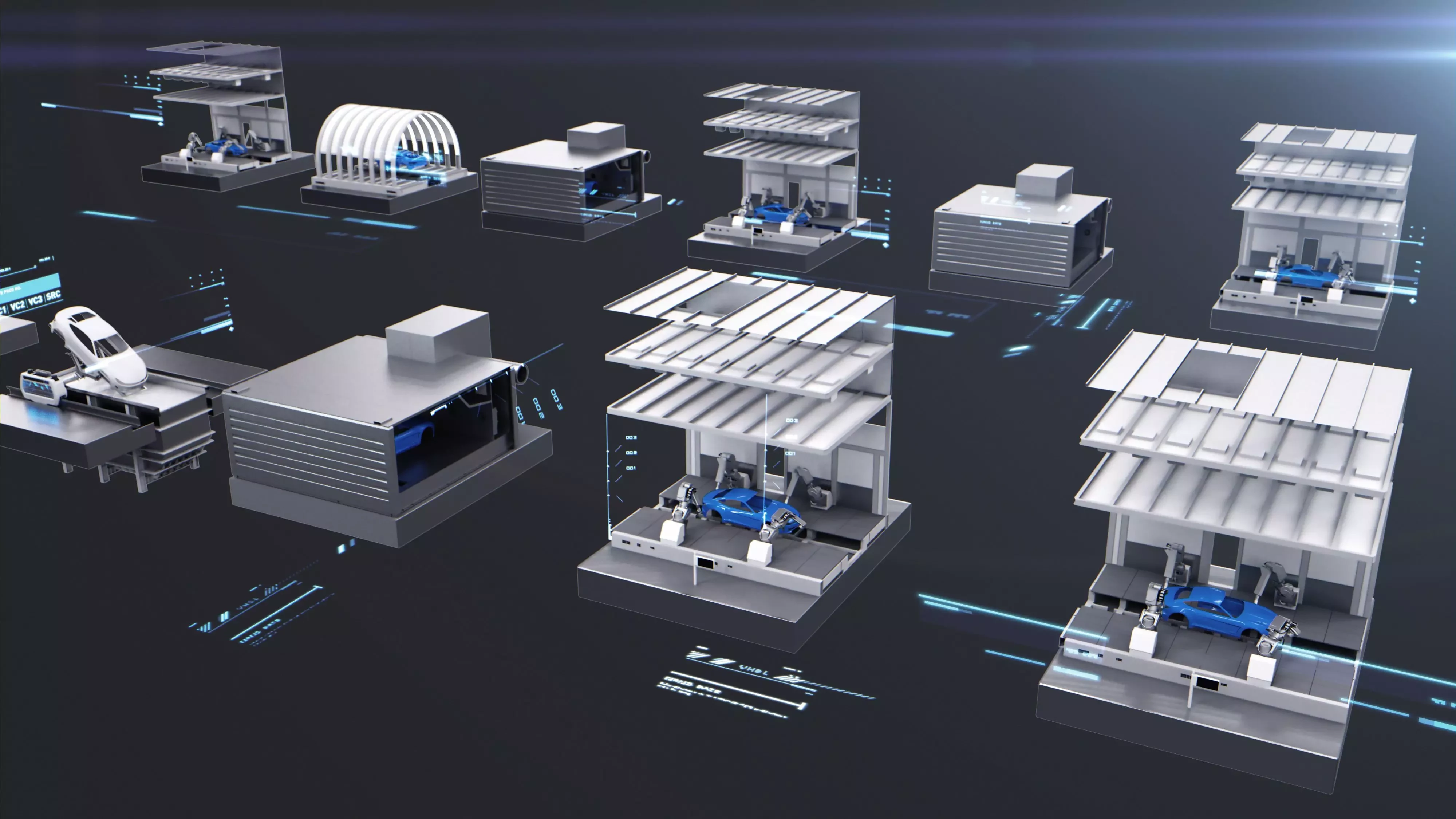Why do body parts exhibit the same defects with unusual high frequency? When is the latest that a mixer in the robot can be replaced without causing a machine stoppage? Precise answers are important for sustainable economic success. Because every defect or every unnecessary maintenance that can be avoided saves money or improves the product quality. “Before now there were very few precise conclusions that would enable the early detection of quality defects or failures. And if there were, they were generally based on a painstaking manual data evaluation or trial-and-error attempts. Artificial intelligent (AI) makes this much more accurate and automatic,” explains Gerhard Alonso Garcia, Vice President MES & Control Systems at Dürr.
The new self-learning Advanced Analytics plant and process monitoring system adds to DXQanalyze. The digital product series from Dürr already included the Data Acquisition modules for acquiring production data, Visual Analytics for visualizing it, and Streaming Analytics. The latter lets plant operators analyze in close to real time whether there are deviations from previously defined rules or target values in production using a low-code platform.
AI application with its own memory
What makes Advanced Analytics special is that this module combines large quantities of data including historical data with machine learning. In the figurative sense this means that the self-learning AI application has a memory. This means that it can use information from the past to both recognize complex correlations in large quantities of data and predict an event in the future with a high degree of accuracy based on the current condition of a machine. There are lots of applications for this in paint shops, whether at component, process, or plant level.
Predictive maintenance reduces plant downtimes
When it comes to components, Advanced Analytics aims to reduce downtimes through predictive maintenance and repair information, for example by predicting the remaining service life of a mixer. If the component is replaced too early, this increases the spare part costs and repair overhead unnecessarily, while leaving it too long to replace a component can result in quality problems during coating and machine stoppages. Advanced Analytics starts by learning the wear indicators and the temporal pattern of the wear using high-frequency robot data. Since the data is continuously recorded and monitored, the machine learning module individually recognizes aging trends for the respective component based on actual use and in this way calculates the optimum replacement time.
Machine learning simulates continuous temperature curves
Advanced Analytics improves quality at process level by identifying anomalies, for example by simulating a heat-up curve in the oven. Up to now, manufacturers only had data determined by sensors during measurement runs. However, the heat-up curves that are of vital importance for surface quality of the car bodies vary since the oven ages during the intervals between the measurement runs. This wear causes fluctuating ambient conditions, for example in the strength of the air flow. “These days, thousands of bodies are produced without us knowing the temperatures to which the individual bodies were heated. Using machine learning, our Advanced Analytics module simulates how the temperature varies under different conditions. This gives our customers a permanent proof of quality for each individual body and lets them identify anomalies,” says Gerhard Alonso Garcia.
Higher first-run rate increases overall equipment effectiveness
At plant level, the DXQplant.analytics software is used with the Advanced Analytics module to increase overall equipment effectiveness. The artificial intelligence tracks system defects such as recurring quality defects in specific model types, specific colors, or on individual body parts. This in turn permits conclusions about which step in the production process is responsible for the deviations. Such defect and cause correlations will make it possible to increase the first-run rate in the future by allowing intervention at a very early stage.
Plant and digital expertise expertly combined
Developing AI-capable data models is a very complex process. This is because machine learning does not work by feeding unspecified amounts of data into a “smart” algorithm, which then spits out an intelligent result. Instead, relevant (sensor) signals must be collected, carefully selected, and supplemented with structured additional information from production. With Advanced Analytics, Dürr has developed a piece of software that supports different use scenarios, provides a runtime environment for machine learning models, and initiates model training. “The challenge was that there was no generally valid machine learning model and no suitable run-time environment we could have used. To be able to use AI at plant level, we combined our knowledge of mechanical and plant engineering with the knowledge of our experts from the Digital Factory. This resulted in the first AI solution for paint shops,” explains Gerhard Alonso Garcia.
By using a runtime environment and developing specific machine-learning models, the application of the Advanced Analytics model is currently being tested in the woodworking industry and in electronics production.
Interdisciplinary knowledge required
Advanced Analytics was developed by an interdisciplinary team made up of data scientists, computer scientists, and process experts. Dürr also entered into cooperation partnerships with several leading automotive manufacturers. This meant that the developers had real-life production data and beta site environments in production for different application cases. First the algorithms were trained in the lab using a large number of test cases. Next, the algorithms continued learning on-site in real-life operation and autonomously adapted to environment and use conditions. The beta phase was recently successfully completed and showed just how much potential AI has.




